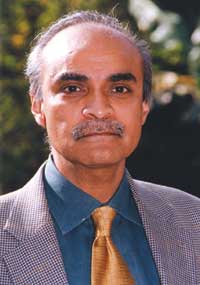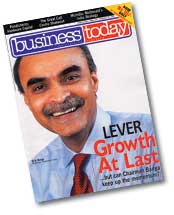 Nepali Times: How did you find the business mood in Nepal during this trip?
Nepali Times: How did you find the business mood in Nepal during this trip? Vindi Banga: The mood is quite positive. Our company is strongly focussed on growth in domestic business, we are seeing that with proper channelisation of strategy and effort that growth can be realised. I am looking at an even more aggressive plan for local sales. As far as the general mood is concerned, I sense one of cautious optimism. There is a hope that the political stability and law and order issue will be resolved.
What are the main challenges and opportunities in Nepal for Lever?
We have enough manufacturing capacity for our current portfolio, our concentration will be on investing in market and brand development, in communication, education, in distribution systems and we will continue to make significant investments over the next several years.
There is immense opportunity to really build markets for many of our product categories. The potential exists because the level of consumption of our products is very low. The basic challenge is in reaching people. Television reach in Nepal is not good enough so we have to rely much more on unconventional media. As you are aware the Indian government has initiated several incentives for investment which have made it economically more viable in some of our product categories to source from India, and therefore you've seen exports come down. I think the important question for us is how can we develop the domestic market faster. Rather than worry too much about what Indian fiscal policies are, I think we should be spending more time thinking about what can be done proactively here to positively drive sourcing, for example by setting up special economic zones.
Whenever a big company like yours enters the market of a small country like ours there is fear that you will overwhelm local businesses.
Our philosophy at Unilever is that we believe that our prosperity as a company lies in the prosperity of the country. We start with that, and then take steps to match the country's priorities. You can see that in every step we have taken in India over the past 50-60 years, and today we are one of the largest companies. We've been in Nepal only for 8-9 years and even during the time we have provided direct employment to 200 people, indirect employment to more than 2,000, and if you count the number of people associated with the company-the stockists, their manpower and traders-it runs into several multiples. We pay a very large sum to the national exchequer, we contribute to training of people who work for us. If you go to Hetauda you will see what it was 10 years ago and what it is today. It is vibrant and the contribution is visible. The notion that multinationals are harmful is an absolutely outdated one.
What possibilities do you see for developing intra-South Asian trade?
Immense! There is a lot of potential. I am a great believer and think we must exploit our own proximity with each other to achieve that even though most countries are at a reasonably early stage of economic reform. Trade can go hand in hand in resolving tensions.
Would trade liberalisation after WTO be conducive to business?
I think so. Joining the global world is a foregone phenomenon. The only question is that we should prepare ourselves for that. It is very important for everybody to ensure that they are competitive. You cannot be competitive at everything. So I think you have to, as a country, pick and choose areas where you can be competitive. Countries have to play to their natural strengths.
Where could Nepal start?
One of the big opportunities for Nepal is to harness hydropower and leverage that. That is the core capability, which is sitting here, which no one can replicate. Look at Bhutan and look at the enormous progress it has made by harnessing hydropower. Hydropower and tourism are the best for Nepal, and you can even combine the synergies of the two. If you are able to do away with the passport requirement between Nepal and India, you can increase tourism. But tourism will require law and order, stability, infrastructure, flights.
 Nepal and other countries in the region have a crisis of governance. What lessons does the private sector have for government?
Nepal and other countries in the region have a crisis of governance. What lessons does the private sector have for government? You have to undertake the journey with a coalition of interests. You have to build consensus with other political parties, local and global industry, and judiciary and with the people. The real challenge for leaders today is to learn how to build this consensus, choose the path very carefully and use each step to cement and make the consensus stronger. Give everybody a little bit to win so that they feel confident about taking the next step, and the next step and the next step. Sometimes all you need is one person who has vision. And leaders can make that difference, because they can make the vision happen.


